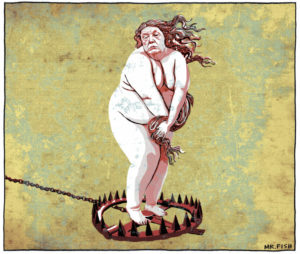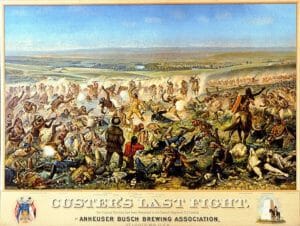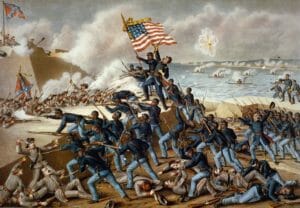Slanting History for the Children on the War on Terror
A high school history textbook taught America’s millennial generation that the threat of terrorism “can be eliminated, the Patriot Act was uncontroversial and Iraq had weapons of mass destruction,” reports The Atlantic's Conor Friedersdorf.
A high school history textbook taught America’s millennial generation that the threat of terrorism “can be eliminated, the Patriot Act was uncontroversial and Iraq had weapons of mass destruction,” reports The Atlantic’s Conor Friedersdorf.
The 2003 edition of “The American Vision” by professors Joyce Appleby, Alan Brinkley, Albert Broussard, James McPhereson and Donald Ritchie, is one of the most popular textbooks used in 11th grade American history courses in the last decade, and a “time-capsule for prevailing attitudes right after the attacks,” Friedersdorf writes. Curious to see how historians represented events he witnessed as an adult, Friedersdorf began his reading with the book’s final chapter, titled “The War on Terror.”
The first paragraph Friedersdorf read skewed figures relating casualties of the Sept. 11, 2001, attacks on the World Trade Center and the Pentagon with the numbers killed in Pearl Harbor and on D-Day, making it appear as though the nearly 3,500 people who died in the 9/11 attacks compared evenly with the tens of thousands of Americans and Allied Forces killed in the other events.
What followed took students from the September attacks to Bush’s invasion of Iraq. The text echoed Bush administration narratives about weapons of mass destruction and mentioned nothing of the social movements and arguments against the invasion, leaving students without a full report of the political reality of the time.
— Posted by Alexander Reed Kelly.
Your support matters…Conor Friedersdorf at The Atlantic:
The textbook moves quickly from a description of 9/11 to a general definition of terrorism: “Terrorism is the use of violence by nongovernmental groups against civilians to achieve a political goal.” On the very next page, a graphic called “Major Terrorist Attacks Affecting Americans, 1970 – 2001” labels the 1983 bombing of the U.S. Marine barracks in Beirut and the 2000 bombing of the USS Cole terrorist attacks, though neither fit the definition the authors just offered.
What follows is an account of the early War on Terrorism told from the perspective of the Bush Administration, often using paraphrased or direct quotes from government officials rather than exercising judgment. “President Bush decided the time had come to end the threat of terrorism in the world,” the authors say, as if discussing a plausible proposal that might well end up succeeding.
Isn’t that the sort of myopia historical study is supposed to gird us against?
Independent journalism is under threat and overshadowed by heavily funded mainstream media.
You can help level the playing field. Become a member.
Your tax-deductible contribution keeps us digging beneath the headlines to give you thought-provoking, investigative reporting and analysis that unearths what's really happening- without compromise.
Give today to support our courageous, independent journalists.






You need to be a supporter to comment.
There are currently no responses to this article.
Be the first to respond.